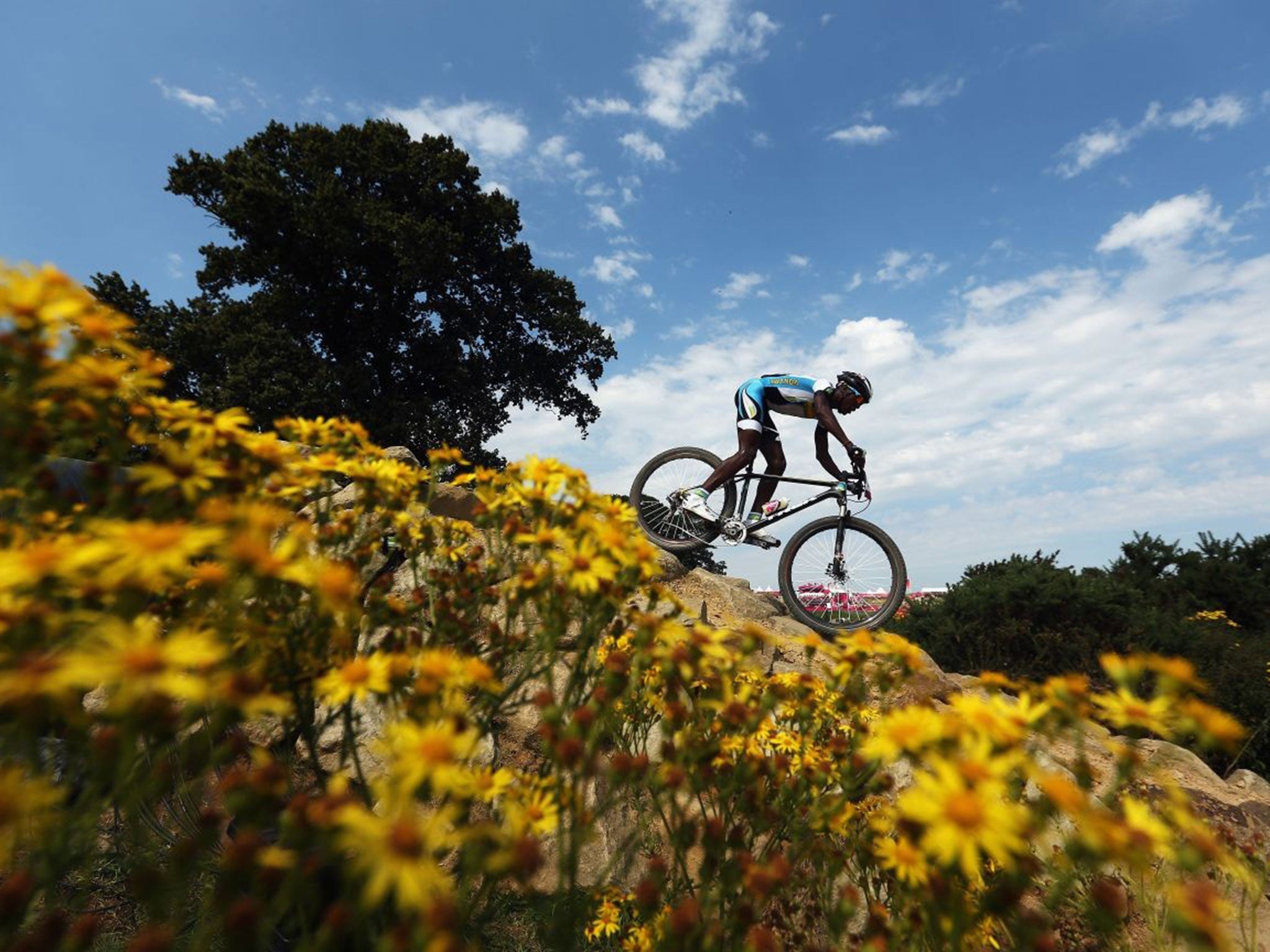The Rwandans who cycle to forget heading for the Commonwealth Games
An astonishing sporting tale has unfolded in Africa and is pedalling its way to the Glasgow later this month

Ruhengeri is gorilla country. The province 100 kilometres north- west of Rwanda’s capital Kigali and 2,000 metres above sea level is where tourists flock each year to see the mountain apes in their natural habitat.
It is also a beacon of hope for a fragile nation 20 years on from the genocide that saw 800,000 of its people killed in 100 brutal, bloody days.
Ruhengeri is cycling country, home to an unlikely sporting fairytale, which will weave its way to the Commonwealth Games in two weeks time, the base for Team Rwanda, whose team tops befittingly depict a sun rising.
The reaction by the public to their riders makes even the most fervent Yorkshireman’s welcome to the Tour de France seem timid in comparison. These men are treated like heroes even though they will leave Glasgow without a medal.
The team’s head coach Jock Boyer, a former American professional rider who once finished 12th in Le Tour, was invited by Tom Ritchey, a former rider and bike maker, to help feed a bubbling interest in the African nation in cycling, a throwback to the Belgian influence from the early 20th Century onwards.
“I was meant to come for three months,” says Boyer. Seven years later, he is still in Rwanda. “When I came here, I had no expectations because I just had no idea where it would go. I didn’t know where Rwanda was on the map, I didn’t know its history. I ignored many of the stories as I felt it was important not to be tainted or biased.”
Boyer has always taken the view that he would never ask the riders for their personal stories but that he would listen intently if they wanted to tell them. As a result, he is regarded as a father figure by the team.
The stories of his seemingly ever-smiling cyclists are horrific. The star rider is Adrien Niyonshuti. A versatile cyclist, he entered the road race for Rwanda at the last Commonwealth Games and competed in the mountain biking at London 2012. His stature in Rwanda, a country which has Commonwealth status even though it was never a British colony, has led to his eponymous cycling academy with the logo “Cycling Towards a Better Future”.
There is a sense that many of the riders are trying to outpedal the past, that the horrors of previous years are not understandably easy to discuss. Niyonshuti had six brothers killed in the genocide. In all, 60 members of his family lost their lives. He too was nearly another statistic, militia men approaching his house only for him to escape as a seven-year-old into the surrounding countryside with his parents.
“I do not remember it,” he says, but perhaps he chooses not to. “I remember my mother saying ‘run’, that it was danger. These people came to my home and my school and killed my family. I don’t know why.”
Niyonshuti bears both mental and physical scars from that day although he says the origin of a mark on his left leg is unknown.
By his own admission he took up “cycling to forget”, an oft-said mantra of Boyer and the riders with his team. Niyonshuti continues: “It’s the thing that helps me forget my problems. I lost my family, my brothers, my grandmother. There is nothing I can do about it now. I have to survive this life I’ve been given. You never forget but you just have to be positive. I do have times when I think: ‘why do I have my life and not others?’ But it makes being on a bike easy.”
More than any rider on the team, though, Niyonshuti rides with the hope, expectation and burden of bad memories of his own and a nation, on his shoulders. But he does so with delight.
His story and that of the team has been made into a documentary, Rising from the Ashes, narrated by the American actor Forest Whitaker.
All the riders live and breathe cycling. One became so infatuated with the sport, he named his son Contador Alberto after the Spanish rider while another, Gasore Hategeka, says he owes everything to cycling.
Boyer recalls laying his eyes on Hategeka for the first time. “Gasore was on this old Eddy Merckx bike welded together and kept up with us on one of our training rides, it was impressive,” he said. “That’s how we were approached a lot in the early days. So we invited him to the centre and he did really well.”
The centre is now a proper hub for cycling of all types, including a BMX track, and receives financial support from the Government, overseas sponsors and cycling’s governing body, the UCI.
When Hategeka first arrived at the hub, he was alone, an orphan from a young age, his mother dying in his infancy and his father in 1997 after being beaten in front of his son by government soldiers. “I remember being alone,” says Hategeka of his struggle to survive as a street kid. “I tried to make some money for me but there were many difficulties.
“Then I came to cycling, now I have a good job. But it’s more. I feel happiness on the bike after hard years living like I did. I felt really bad when I came to cycling as I had no father and mother. But every day now I feel good, cycling is my new family. Cycling has just changed many things for many people.”
Rwanda won’t feature on the medal table at the Commonwealth Games but that is hardly the point. Just being in Glasgow will represent a triumph.
Join our commenting forum
Join thought-provoking conversations, follow other Independent readers and see their replies
Comments